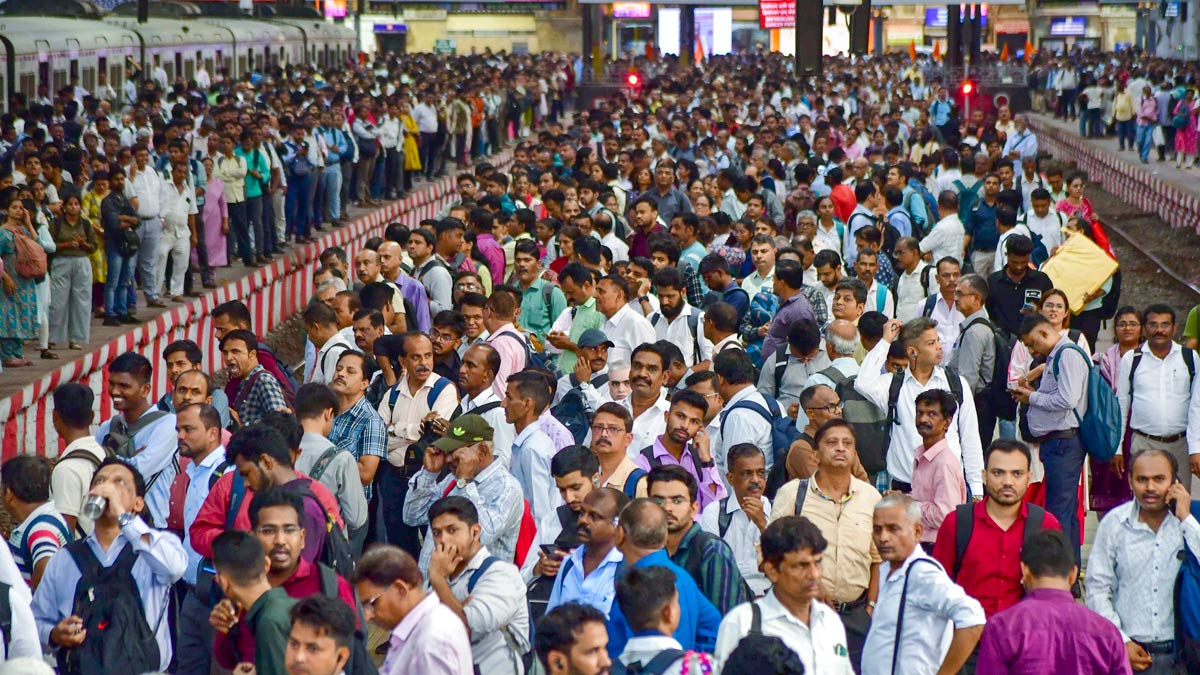OPINION | Mumbaikars’ long wait for dignified commuting
 Passengers wait to board local trains amid a massive rush at CSMT, in Mumbai | PTI
Passengers wait to board local trains amid a massive rush at CSMT, in Mumbai | PTI
When news broke of the tragic train accident between Diva and Mumbra stations on the central line, something in me froze. I didn’t know the names of those who died. But I know their faces. I know their lives. Because I’ve lived that life, too.
Born and brought up in Mumbai, my existence, as has that of most Mumbaikars' has been defined by the rhythm of its trains. For millions like me, the local train is not just a mode of transport—it’s a way of life. A lifeline, as we often call it, with all the weight that word carries. It gets us to work, to college, to family, to weekend escapes, to hospitals, to dreams. And sometimes, tragically, it also becomes the end of that journey.
There was a time, not too long ago, when I would travel daily from Kalyan to Andheri—two hours one way. Four hours of my day, every single day, were spent inside those rickety compartments. The mornings were a blur, as we jostled for space, but the return journeys were always different - full of fun and camaraderie. That’s when the train turned into a home.
Inside those compartments, I could see women cutting vegetables for dinner, we sang bhajans in perfect sync, we gossiped, laughed, and cried. We celebrated birthdays, passed around homemade ‘theplas’, and offered a listening ear to strangers going through heartbreak or job loss.
With me in the first-class middle ladies' compartment, there were women from different corners of the city living parallel lives that intersected in these trains. We didn’t know each other’s full names, but we saved seats for each other. We were a family.
It’s impossible to explain to someone who hasn’t grown up here what trains mean to a Mumbaikar. You don’t choose to take the local. You simply must. Because if you’re middle class or lower, and you live far from where you work—as most of us do—there’s no other way. Trains become your legs. Your breath. Your timetable. If they stop, the city collapses. And yet, despite being so essential, the system is falling apart.
Why do we still have open doors in non-AC trains, even after decades of gruesome accidents? Why are we hanging out of packed coaches, risking life and limb just to make it to work? Why is it that air-conditioned trains, automated doors, and real safety upgrades still continue to remain a wishlist?
After I moved to Wadala and began working in BKC, I finally got some relief from the grind of long-distance travel. But I never stopped taking the train. Whether it’s a trip to Thane for a family function or a monsoon escape to Karjat, the first thought that crosses any Mumbaikar’s mind is: Which train do I take? We plan our lives around train timings. The delay of a few minutes can mean the loss of a day’s pay, a missed interview, or a fight at home.
And yet, we carry on - a collective act of resilience.
To those who lost loved ones in the Diva tragedy—my heart is with you. I know your pain isn’t just about death. It’s about how senseless and avoidable it was.
All we ask for is dignity in travel. For trains that are safe, reliable, and humane. We want ACs, yes—but more than that, we want doors that close, platforms that don’t kill, systems that care.
Society